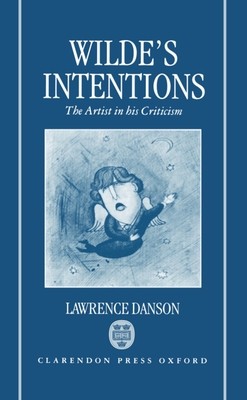
- We will send in 10–14 business days.
- Author: Lawrence Danson
- Publisher: Clarendon Press
- ISBN-10: 0198183755
- ISBN-13: 9780198183754
- Format: 14 x 21.6 x 1.6 cm, hardcover
- Language: English
- SAVE -10% with code: EXTRA
Reviews
Description
What were Wilde's intentions? They had always been suspect, from the time of Poems, when the charge was plagiarism, to his trials, when the charge was sodomy. In Intentions (1891), and in two related essays, "The Portrait of Mr W. H." and "The Soul of Man Under Socialism," Wilde's epigrammatic dazzle and paradoxical subversions both reveal and mask his designs upon fin-de-siécle society. In the first extended study of Wilde's criticism, Lawrence Danson examines these essays/dialogues/fictions and assesses their achievement. He sets Wilde's criticism in context, showing how the son of an Irish patriot sought to create a new ideal of English culture by elevating "lies" above history, leveling the distinction between artist and critic, and ending the sway of "nature"u over liberated human desire.
EXTRA 10 % discount with code: EXTRA
The promotion ends in 17d.23:46:53
The discount code is valid when purchasing from 10 €. Discounts do not stack.
- Author: Lawrence Danson
- Publisher: Clarendon Press
- ISBN-10: 0198183755
- ISBN-13: 9780198183754
- Format: 14 x 21.6 x 1.6 cm, hardcover
- Language: English English
What were Wilde's intentions? They had always been suspect, from the time of Poems, when the charge was plagiarism, to his trials, when the charge was sodomy. In Intentions (1891), and in two related essays, "The Portrait of Mr W. H." and "The Soul of Man Under Socialism," Wilde's epigrammatic dazzle and paradoxical subversions both reveal and mask his designs upon fin-de-siécle society. In the first extended study of Wilde's criticism, Lawrence Danson examines these essays/dialogues/fictions and assesses their achievement. He sets Wilde's criticism in context, showing how the son of an Irish patriot sought to create a new ideal of English culture by elevating "lies" above history, leveling the distinction between artist and critic, and ending the sway of "nature"u over liberated human desire.


Reviews